Eat these hydrating foods to nourish your skin from the inside out.
The cold weather can easily make your skin feel flaky, itchy and incredibly dry. While moisturizing your skin on the outside is great (and you should definitely slather on that coconut oil frequently!), you may want to try a different approach for smooth, supple skin.
Here’s how you can eat certain foods to moisturize your body from the inside out – and why it’s even more important than what you put on your skin.
Want naturally radiant skin? We’ve created a FREE guide to give you the best tips & tricks for natural skincare.
Click here to get your FREE copy of our Skincare Guide!
What Causes Dry Skin?
To better understand how to keep your skin feeling soft and moist, it helps to first understand what causes dryness in the first place. Often, it’s more than just dry, cold weather.
1. Dehydration
One of the main causes of dry skin is dehydration. This may seem like a no-brainer, but it can be easy to not drink as many fluids, like cold water, in the winter.
Studies show that drinking fewer fluids can indeed impact the health of your skin, proving that participants who drink more water have stronger skin when put under a skin “stress” test. (1) This is because the skin becomes less elastic when it’s holding less water and is, therefore, more prone to damage.
2. Lack of Healthy Fats
Not getting enough healthy fats in your diet, such as omega-3s from fish, or healthy monounsaturated fats from olive oil, or even animal fats from grass-fed animals, can play a role in dry skin.
A lack of fatty acids can contribute to flaky skin conditions like atopic dermatitis, while higher levels of omega-3 fatty acids help regulate sebum production, which helps keep our skin well “oiled”. (2, 3)
3. Stress
Believe it or not, stress and your skin are intricately linked. In fact, researchers state that our skin is an “immediate stress perceiver”, meaning that our skin tone, texture, and health reacts immediately to our stress levels. (4)
Stress and the hormones associated with it can cause dry skin as well as skin conditions like psoriasis and acne. (5)
4. Vitamin and Mineral Deficiencies
Have you been slacking on your fresh fruit and veggie intake since the weather turned cooler? Sometimes vitamin deficiencies can affect the quality (and suppleness) of our skin. For instance, lack of vitamin C can contribute to skin dryness, as studies show that vitamin C significantly improves skin hydration. (6)
In addition, minerals like copper can help support healthy collagen levels, which in turn boosts skin hydration. (7, 8)
Not getting enough of these vitamins and minerals can certainly lead to dried-out skin pretty quickly.
Why it’s Important to Moisturize from the Inside Out
While cold weather is a factor, there are lots of other reasons that your skin is extra dry these days. If you’ve been moisturizing your skin to no avail, it’s likely that the issue is more nutrition based.
No matter how many oils or moisturizing creams you put on your face, it won’t counteract an internal lack of moisture. Our skin naturally produces sebum, an oil that keeps our skin hydrated on every single layer. Topical moisturizers typically only moisturize the outermost layers of your skin, which is why the moisture never “sticks”.
Luckily, there are several foods you can add to your diet to help improve moisture in your skin from within, so you’re not slathering on face creams and suffering from dryness, anyway.
8 Foods to Eat for Dry Winter Skin
1. Fatty Fish
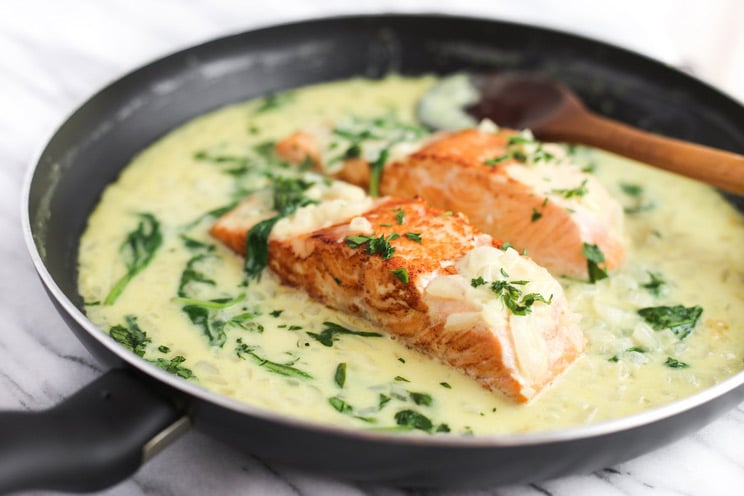
Wild salmon, sardines and other fatty fish contain abundant amounts of omega-3 fatty acids, which significantly increase skin hydration. (9) Be sure to eat the skin of the fish as well, as it contains carotenoids, lutein, and zeaxanthin, which improve skin tone and hydration. (10)
Aim for at least three servings of wild-caught fatty fish per week for smooth, supple skin.
2. Nuts and Seeds
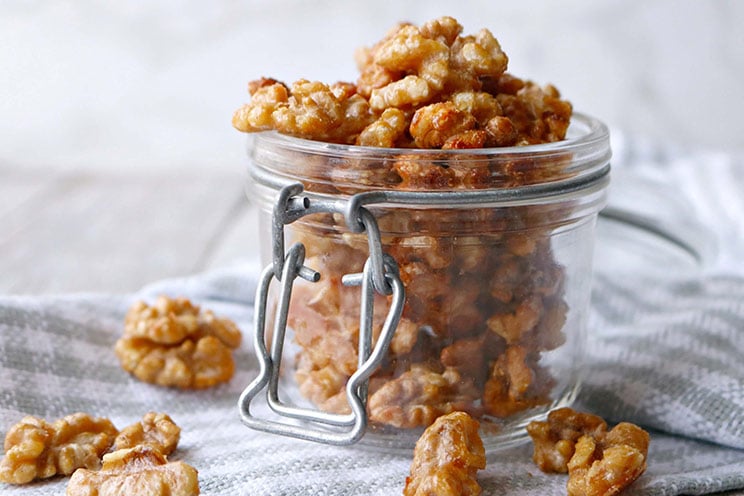
Nuts contain lots of essential vitamins and minerals that can help keep your skin moisturized. Brazil nuts, for instance, are high in selenium, which increases a potent antioxidant called glutathione. Glutathione can help improve symptoms of psoriasis, which is characterized by dry, flaking skin. (11)
Other nuts and seeds, like flax and walnuts, contain hearty amounts of omega-3 fatty acids, that increase skin hydration. (12)
Add a small handful of nuts to your salads, or add a dash of flaxseeds to your smoothies.
3. Oysters

Oysters are high in several minerals essential for skin health, like selenium, zinc, and copper. Copper can stimulate collagen production, which increases skin elasticity. (13) This is important because when skin dries out and loses elasticity, it becomes more prone to microscopic tears and wrinkles. (14)
Shoot back a few oysters once a week for a hefty dose of collagen-boosting minerals.
4. Avocados
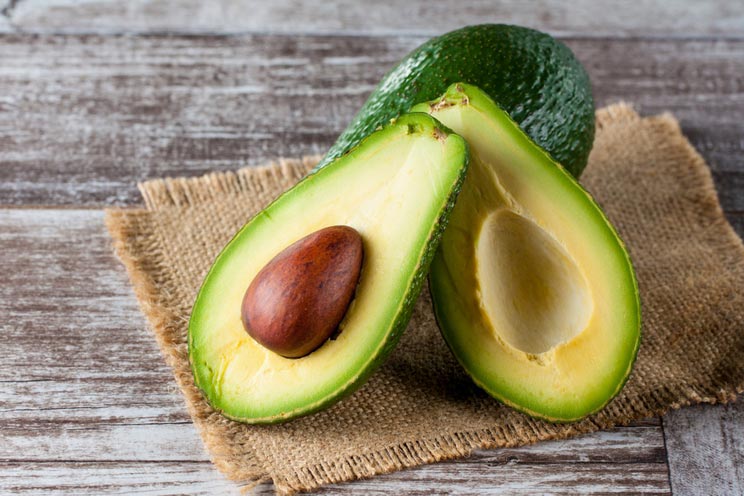
In case you needed another reason to eat more avocados, these fatty fruits are filled with vitamins C and E. Vitamin C, in particular, can help stimulate collagen synthesis, which helps skin become more supple and elastic (the opposite of dry, tight skin). (15) Plus, studies show that not getting enough vitamin E can result in skin dryness. (16)
Add half an avocado to your daily salad or smoothie and watch how quickly your skin health improves!
5. Sweet Potatoes
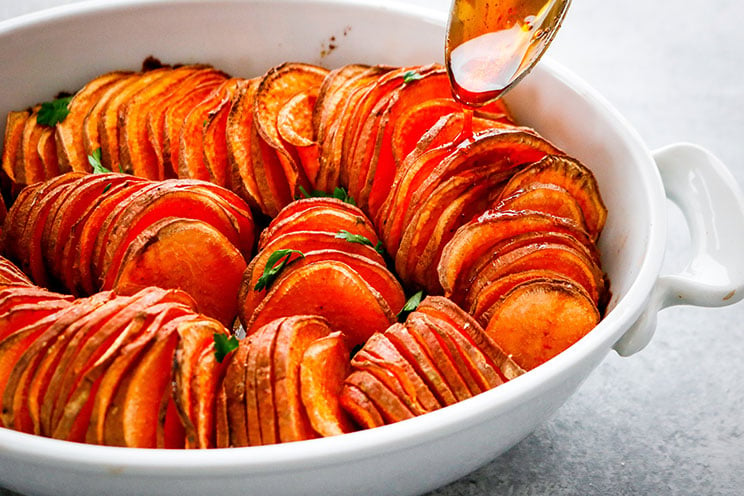
Strengthening your natural skin barrier is an excellent strategy for keeping the cold, dry winter air from penetrating and damaging your skin by drying it out. The stronger your skin barrier is with natural oils, the less chance it will have of being affected by the elements.
Add a side of mashed or roasted sweet potatoes to your dinner to help firm up your skin.
6. Bone Broth
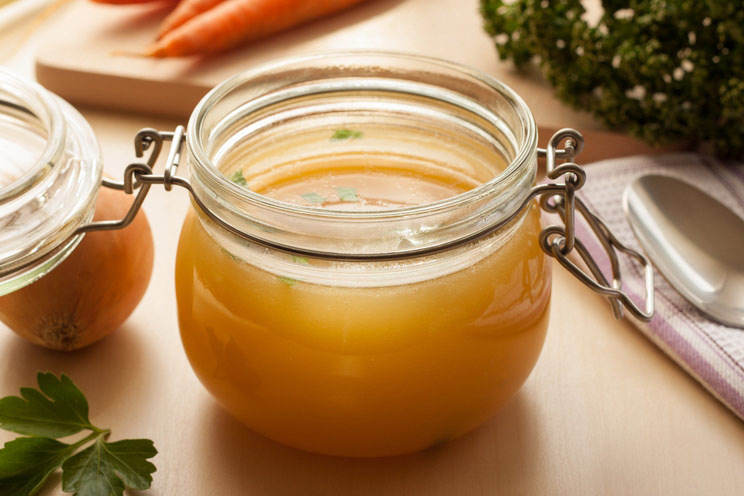
Get a pot of bone broth simmering on your stovetop so you can have a daily cup. Scroll to the bottom of this article to learn how to make your own.
7. Kale
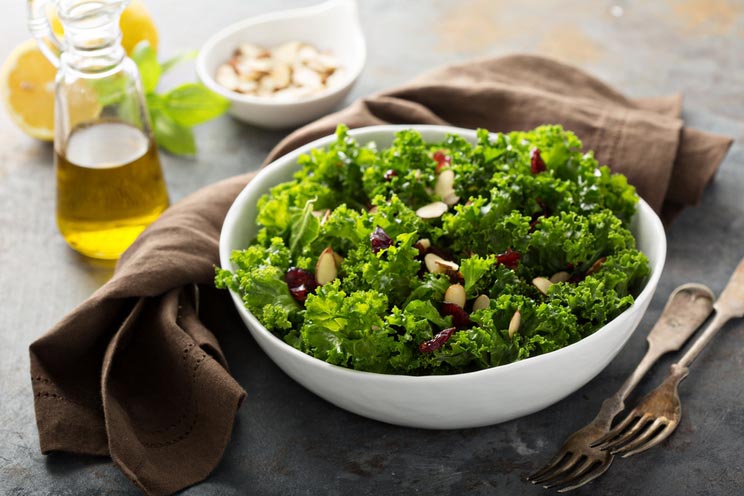
Here’s yet another reason to eat your greens: Kale and other leafy greens are rich in lutein and carotenoids, which improve skin hydration and prevent the breakdown of collagen. (19, 20)
Steam up some fresh kale to serve with salmon for a double dose of skin-hydrating antioxidants and fatty acids.
8. Adaptogen Herbs
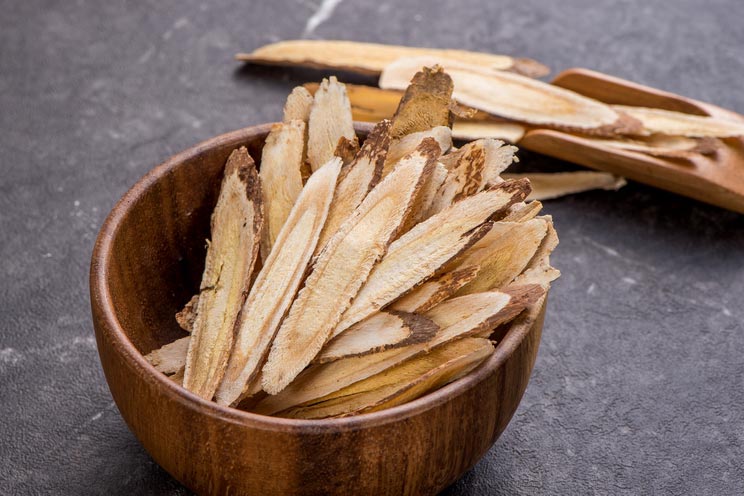
Although technically not a “food” per se, adaptogen herbs can help restore your supple skin, especially if your excess dryness is stress-related. Remember that your brain and skin are directly linked, which means stress can show on your skin by becoming dull or flaky. (21)
Adaptogen herbs help your body better adapt to stress, so your stress levels are naturally lower. (22) Recommended adaptogen herbs include:
- Ashwagandha
- Astragalus
- Ginseng
- Schizandra
Healthy Recipes for Your Skin
- Maple Cinnamon Roasted Cashews
- Pan-Seared Salmon with Creamy Garlicky Ghee Sauce
- Sweet Potato Noodles with Creamy Poblano Sauce
- Triple Threat Avocado Smoothie
- DIY Bone Broth
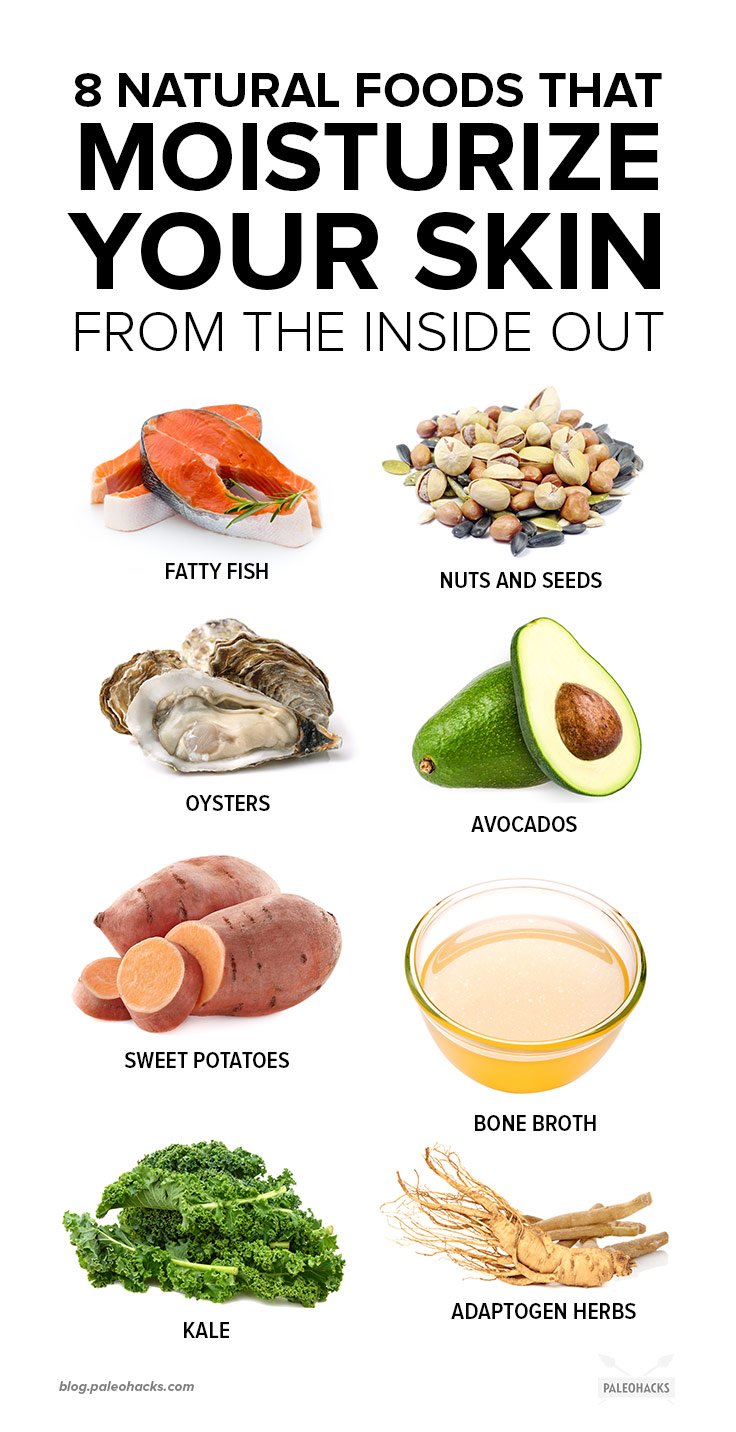



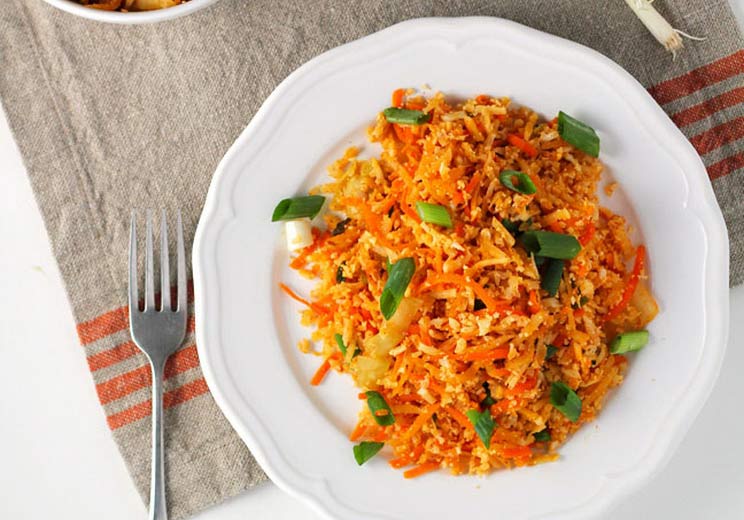 Bacon and Broccoli Cauliflower Fried Rice
Bacon and Broccoli Cauliflower Fried Rice

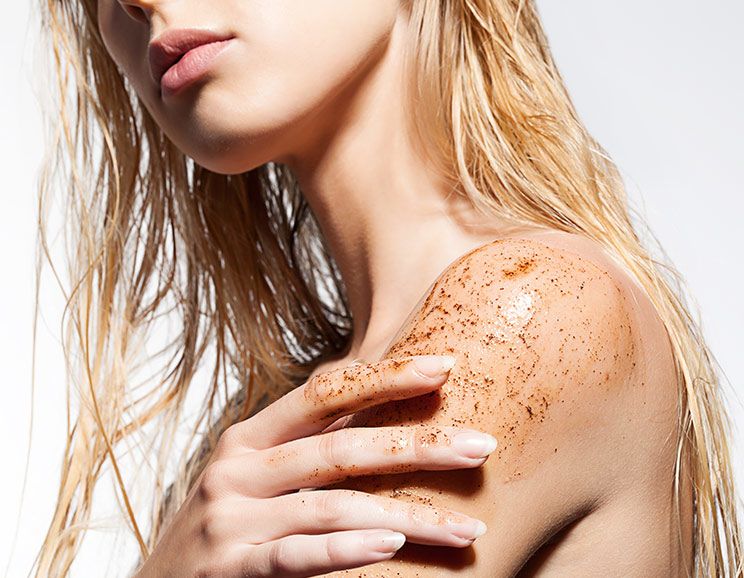


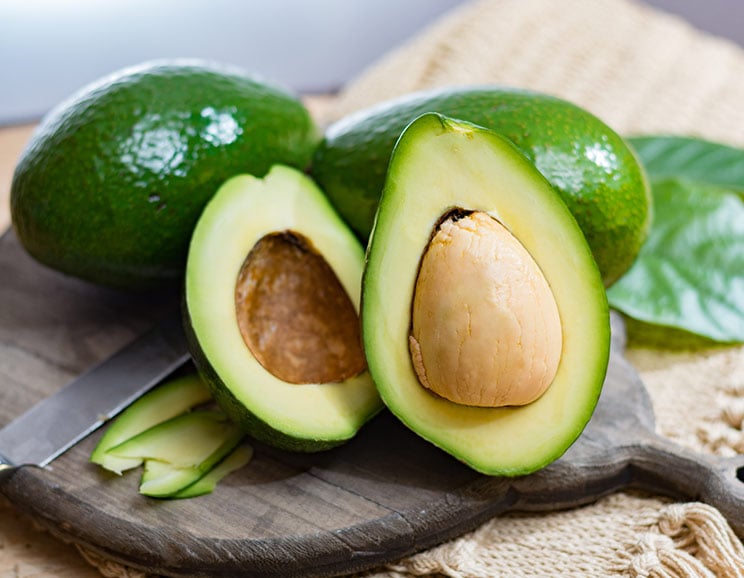

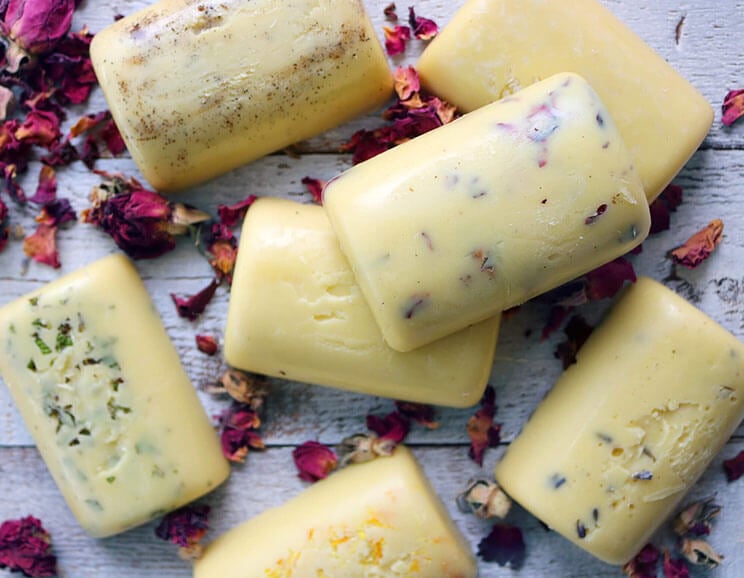
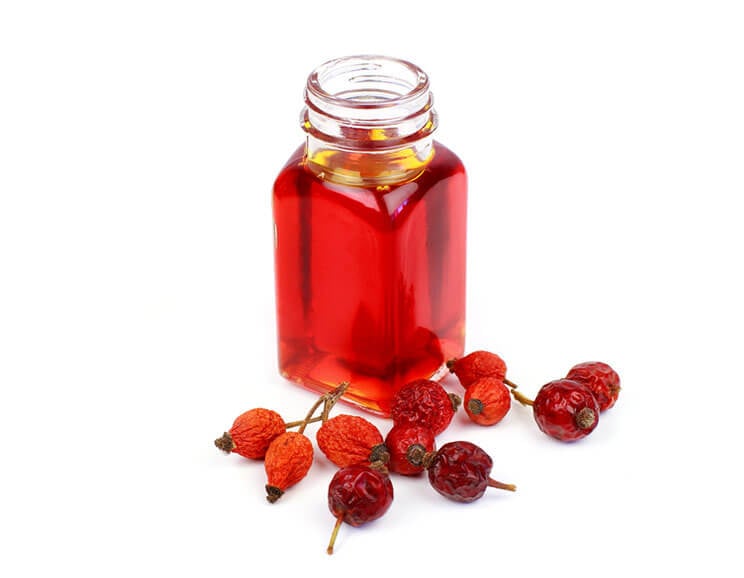
Show Comments